Community projects flower under the Men’s Garden Club
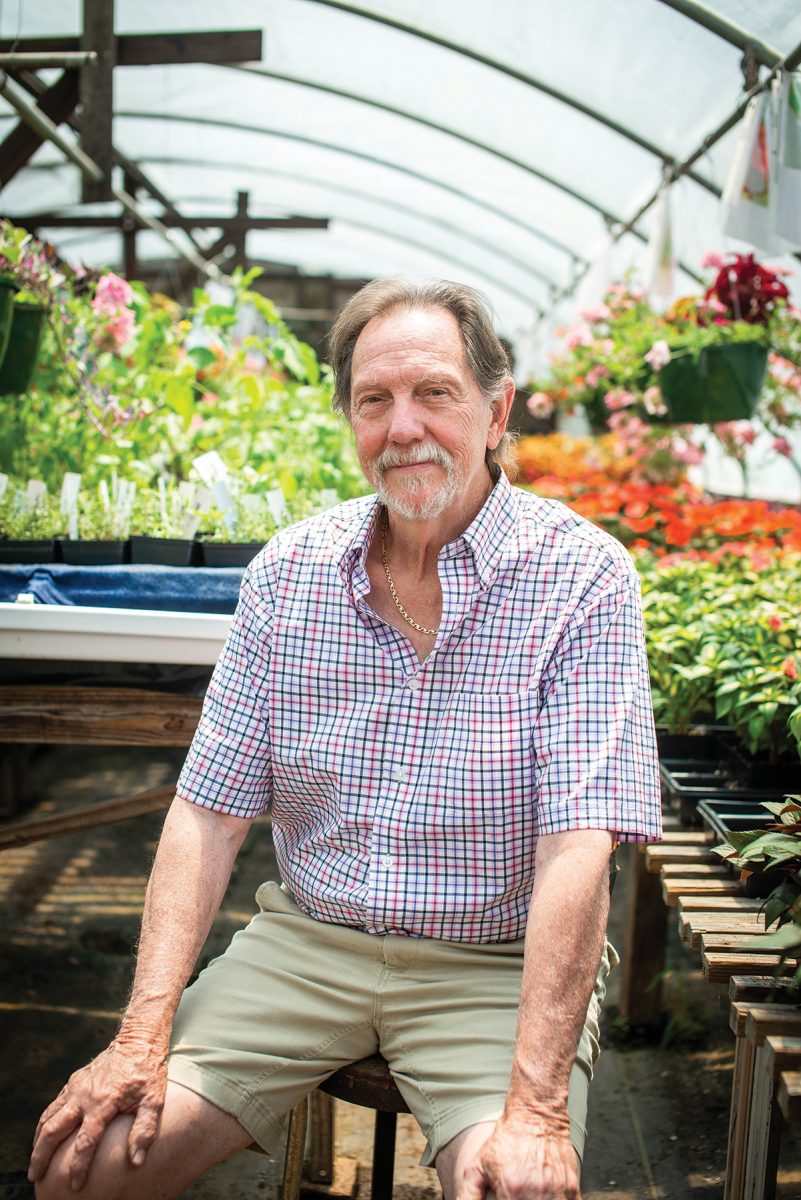
Photo by Karin Strickland
The old notion of a garden-club meeting conjures images of crustless sandwiches, sly competition for blue-ribbon rosebushes, and well, not a lot of actual digging in the dirt. This visual couldn’t be further from The Men’s Garden Club of Asheville — a vital, fellowship-focused gardening alliance that’s firmly planted in the local community.
The Club was founded in 1940 and its first president was a physician, Dr. G. W. Kutscher. Back then, the group focused on flowers, and were members of the Men’s Garden Club of America.
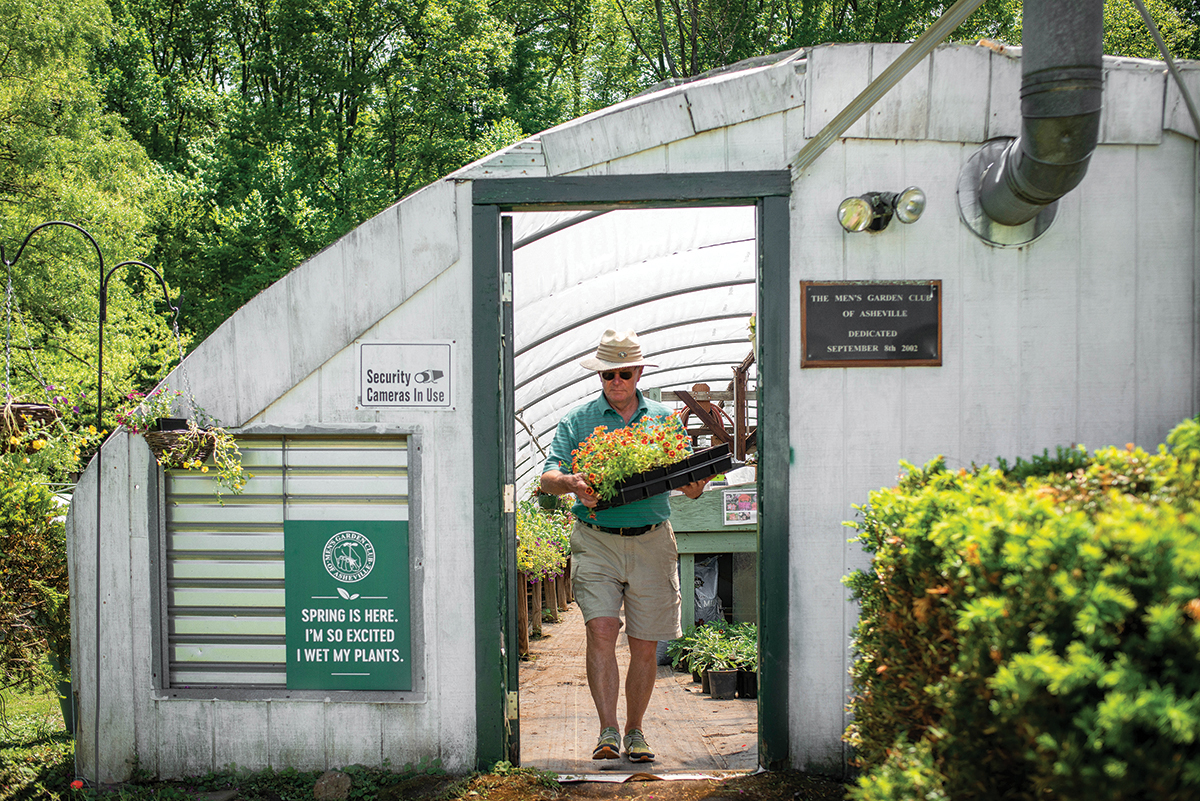
Photo by Karin Strickland
“Most were professionals, and a number had careers as florists,” explains member Ray Geiser, the current director of the club’s Hardesty-Faber Horticulture Center. “Early on, they put on the largest flower show in the state for some years.”
Current club membership consists of a diverse cross section of men. “We have everyone from master craftsmen, financial professionals, lawyers, and more,” says Geiser. The directory lists members and their areas of expertise, “from propagating and landscaping to dahlias and herbs.”
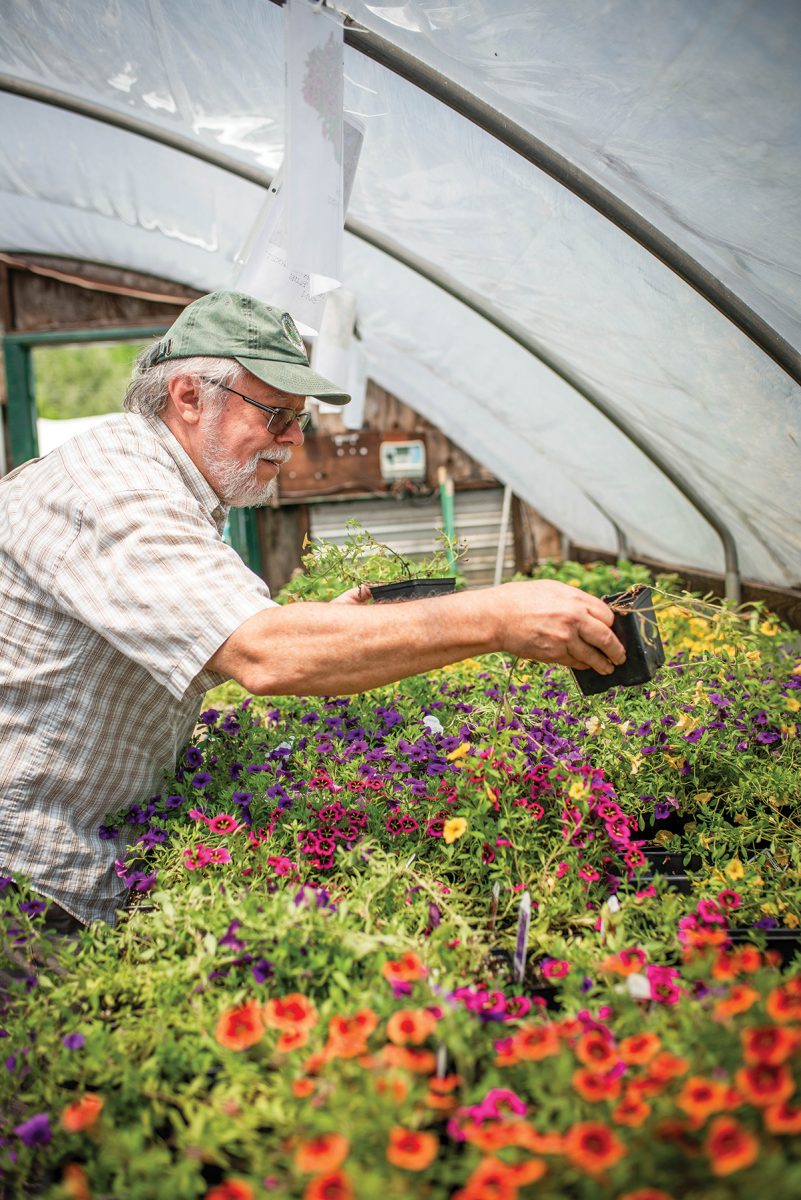
Like any long-lived organization, the group’s priorities have morphed over the decades, frequently fueled by its members’ prevailing interests and by national gardening trends. But public evidence of their work can be seen throughout Asheville.
“We’ve been involved in everything from working on container-garden projects at local elementary schools and sponsoring the ‘Yard of the Month’ project in neighborhoods all over Asheville, to city beautification projects, like tending to the plantings and landscaping at Asheville Community Theatre,” explains Geiser.
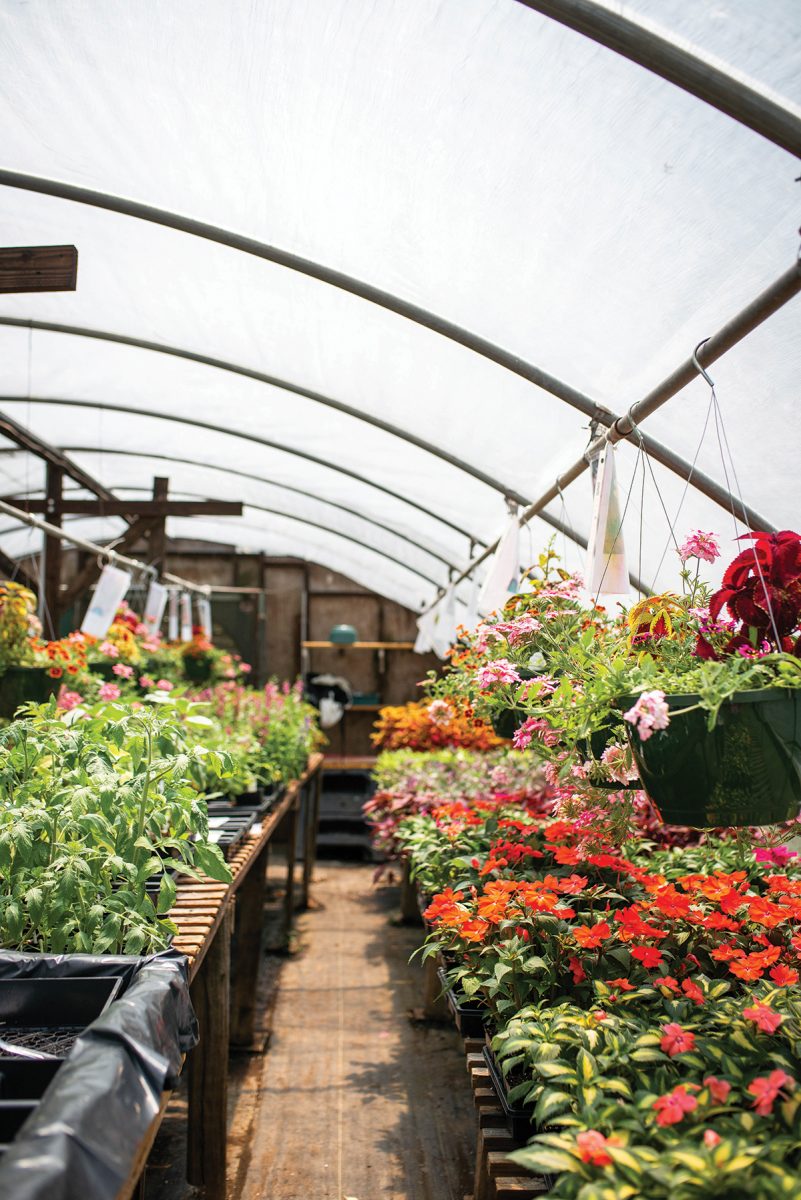
For the last two decades, their efforts have revolved around funding scholarships for community-college students studying horticulture. “Over the years, we’ve been happy to support master programs at community colleges [that offer horticulture], such as Haywood Community College, Mayland Community College, and Blue Ridge Community College, where we focus 100% of our efforts now,” explains Geiser. “We do this by raising plants and flowers and selling them at our annual sale event.” This support gives students a jumpstart toward getting their full degrees, and, ideally, the impetus to go on to fulfilling careers.
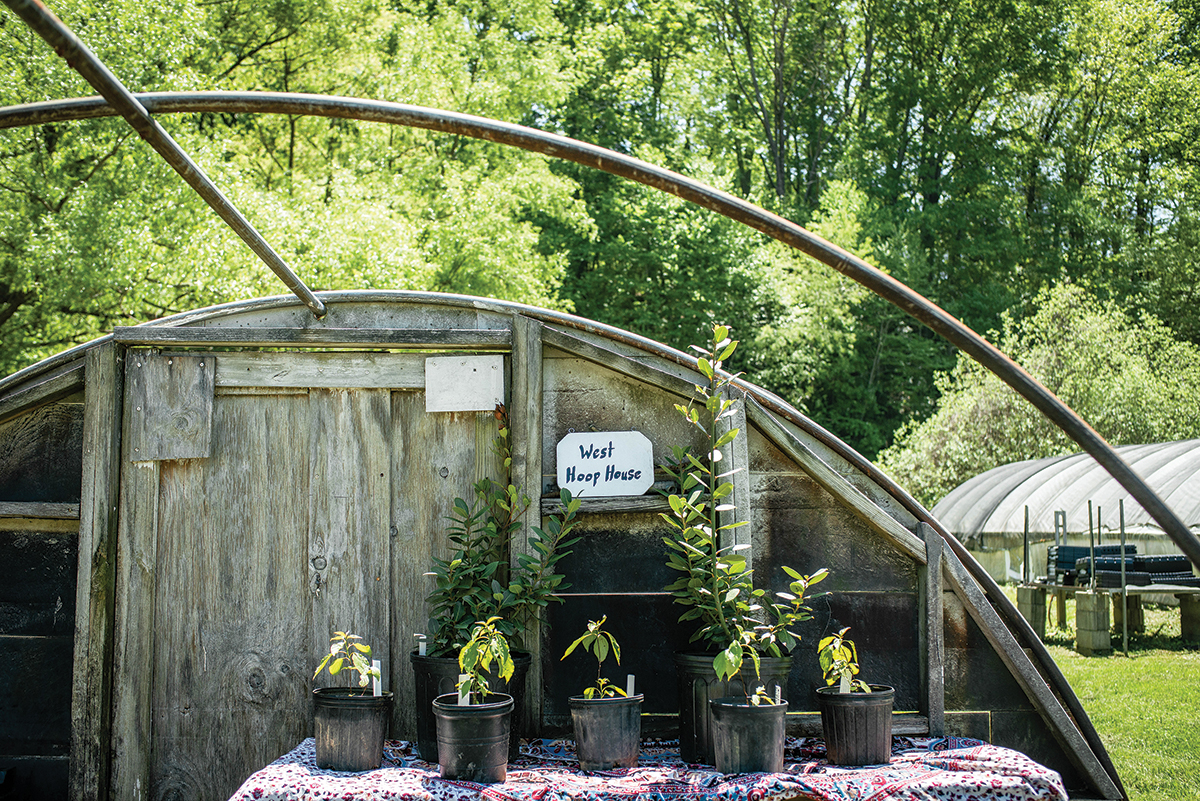
Geiser proudly shares the DIY history of the Horticulture Center’s establishment. “We acquired about three-fourths of an acre of land from the City of Asheville along Azalea Road and under the Parkway, with a pond next to it.” Past president Gerry Hardesty purchased equipment from a going-out-of-business operation and club members constructed the site’s new greenhouse, three hoop houses, and a storage shed, and installed irrigation pumps and pressure tanks that could extract water from the pond for watering purposes. “All of this is maintained by our member volunteers,” states Geiser, noting that they also added a pavilion with picnic tables and a fire pit where the club holds outdoor meetings and gatherings.
This is also where members plant and lovingly tend 5,000 to 11,000 annuals and perennials, grown from tiny seedlings over about 75 days, destined for their annual sale, as well as veggies propagated by members. Geiser declares that, not unlike newborns, the plants require near constant attention, so members take shifts caring for them to ensure they’re robust for the annual sale. This year’s took place at Beverly Hills Baptist Church, and the Club finished the May weekend off with a sale in Black Mountain in conjunction with the town’s beautification committee.
“At our last planting we had 22 guys standing shoulder to shoulder in our greenhouse getting these tiny plants started,” says Geiser. “It’s inspiring to see and be a part of.”
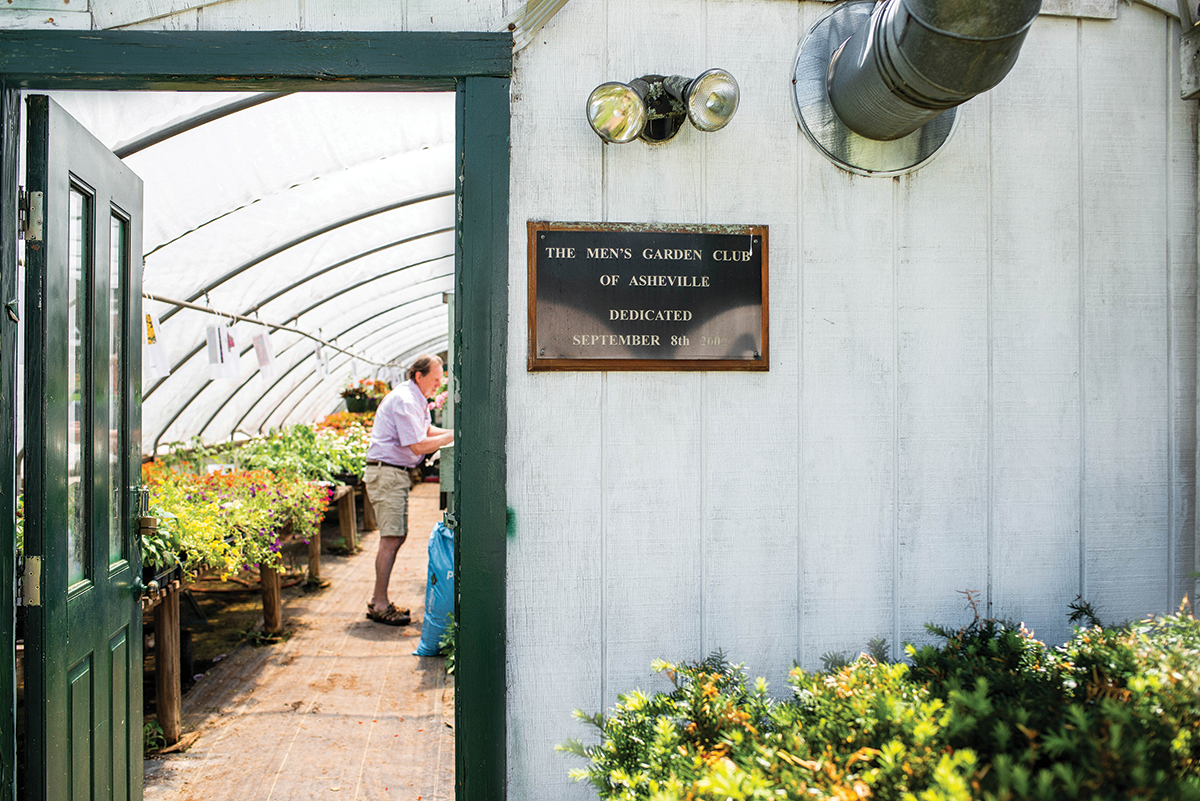
The club’s history of beautifying city sites includes a major landmark that involved more work than perhaps all the others combined. “We assumed the re-landscaping restoration project at the Smith-McDowell House Museum, Buncombe County’s oldest brick home,” notes Geiser. The gardens were designed by Frederick Law Olmsted’s sons and their original lines had long been obscured. Club member Bob Thrasher researched the garden’s original blueprint, and then membership showed up en masse for the restoration. “Bob still oversees the maintenance project and the volunteers who trim, fertilize, and mow,” Geiser comments.
Not surprisingly, the pandemic put a damper on the club’s activities, but the membership, which numbers more than 60 now, is again raring to go. The $30 annual fee includes monthly meetings at the historic First Baptist Church in downtown Asheville (with lunch), trade talk, and socializing.
“We’re very much a year-round, working club,” says Geiser. “Members go where they’re needed, and the camaraderie we share is truly special.”
Men’s Garden Club of Asheville, mensgardenclubofasheville.org.
